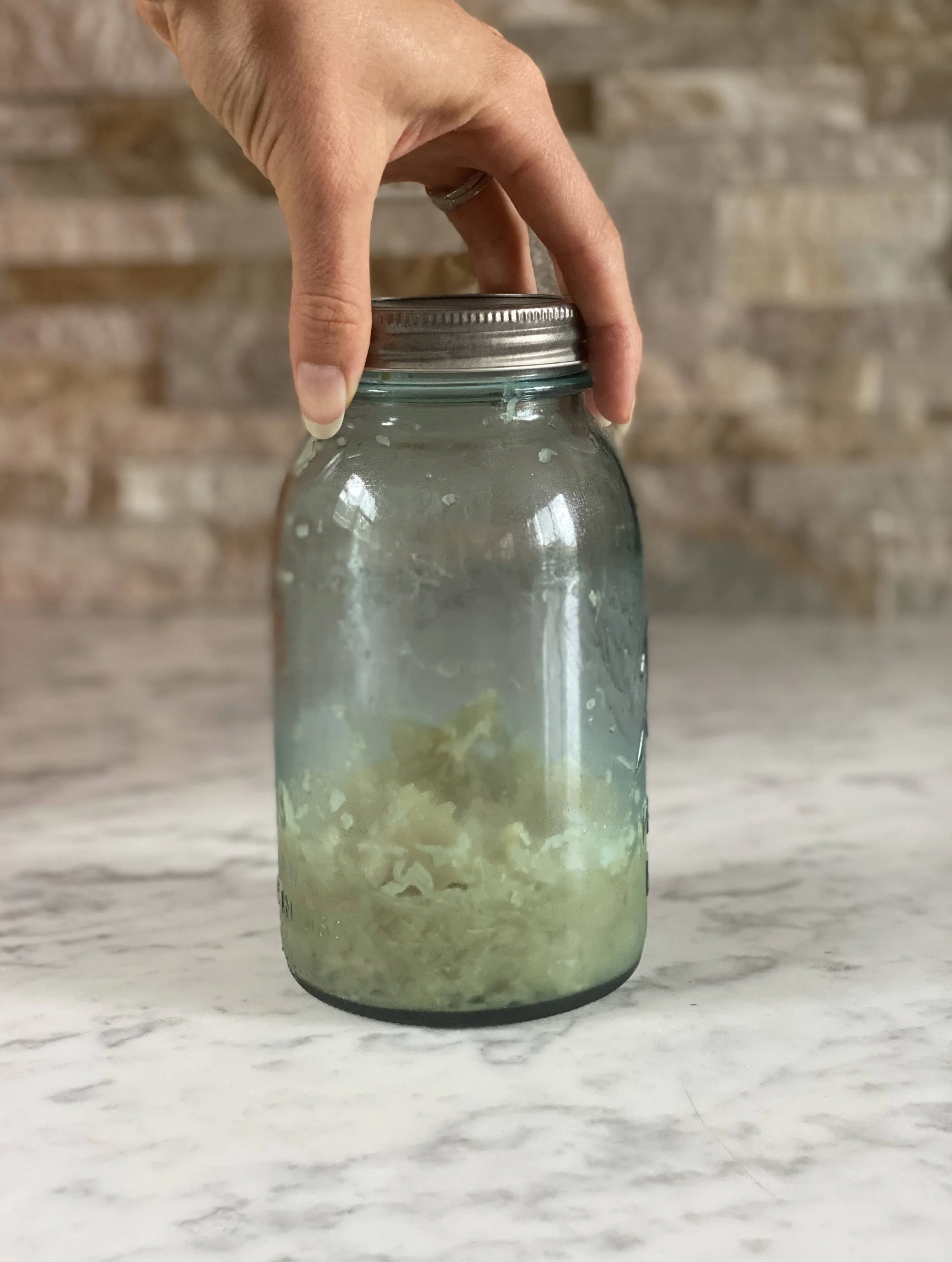What are Probiotics?
If we break down the word: pro- in latin means “for” and biotics is derived from the Greek word biōtikos relating to life. So essentially probiotics mean “for life.” Our gut lining (referring to our gastrointestinal system) has trillions of bacteria that helps us maintain immunity and reduce allergic responses, among other things.
The role of the bacteria in our body is to protect the gut lining and determine what can and cannot get into the bloodstream. If bad things get into our bloodstream then our body will attack it which can look like increased inflammation or an allergic reaction. If this continues to happen over time this can lead to autoimmune disease.
Since this bacteria in the gut lining is living it needs to be fed. The food that we eat is going to do one of two things. 1) feed the good bacteria causing them to replicate or 2) feed the bad bacteria causing them to replicate. Examples of food that feed the bad bacteria are: refined sugar, alcohol and processed foods. Foods that feed the good bacteria are what we call pre-biotics (garlic, onions, leeks, asparagus and many more).
Why do we want to feed the good bacteria?
The good bacteria help to inhibit the bad bacteria from taking over. They improve the function of the cells lining your gut by increasing mucus and healing. They also improve the immune compounds in your gut to decrease inflammation.
Research on the bacteria in our gut (also known as the microbiome) has increased tremendously over the years and improving the bacteria in your gut has been shown to improve metabolic syndrome, irritable bowel syndrome (IBS), irritable bowel disease (IBD), depression, cardiovascular disease and many other chronic diseases (see more from article posted below).
When would be an appropriate time to take a probiotic supplement?
After you have had antibiotic treatment. We have to understand that any antibiotic is going to kill all the bacteria in your gut (in order to get rid of the bacterial infection which can absolutely be life saving). It does not only kill the bad guys it kills the good guys as well. This is why a common side effect of antibiotics is GI symptoms. Therefore after antibiotic treatment it is so important to take a probiotic supplement to replenish the good bacteria to restore your gut. It can be difficult to determine which one to take but as a rule of thumb, it is important that it is refrigerated as that will help maintain the potency of the bacteria in the capsule for up to 2 years.
What if I don’t want to add another supplement?
You don’t have to! This information is meant to help you understand the buzz word of probiotics. They are not necessary for everyone with a few exceptions. 1) As mentioned above, if you have taken a course of antibiotics (or have taken many in the past), a probiotic supplement is the best way to restore your gut bacteria. 2) If you have digestive symptoms that are causing gut dysbiosis (microbial imbalance). Probiotics can be helpful but it is not going to cure your problem. No probiotic will make up for poor eating patterns (processed food, refined sugar, alcohol, etc).
So what do I do?
Add fermented foods on a regular basis. Fermented foods naturally have probiotics in them and are a great way to diversify and improve the bacteria in the gut. Great examples of fermented foods are: yogurt, sauerkraut, kimchi, kombucha, kefir, miso, pickles and others. The process of making a fermented food is, in most cases, using the bacteria that naturally occurs in our environment to create chemical reactions to the food. Raw sauerkraut, for example, is made by using cabbage and salt. Once the juices are extracted from the cabbage by the salt, the contents are put in a jar and submerged in its own liquid. The jar is then left on the counter (in a cool dark place) covered by cheesecloth. This allows good bacteria to enter and ferment the cabbage organically and is left for about a week or however sour you want your kraut.
Tips:
For sauerkraut/pickles/pickled veggies: make sure that it says raw on the label. If the food has been pasteurized (heat treatment) then the good bacteria has been removed.
For yogurt: opt for yogurt that specifically mentions the types of bacteria in it. Also make sure the product is low in sugar as many yogurts have a lot of added sugar.
Find a form of fermented food (or multiple) that you can start adding to your eating pattern at least once per day. Make note of how these foods make you feel and if you notice a change in your digestion over time. As I mentioned before, no probiotic is going to make up for bad eating habits. If you feel that you need more guidance on this topic, consider working with a wellness coach to help get to the bottom of your digestive symptoms. If you want to learn more, apply for a free 30 minute consultation so we can chat about your wellness goals!


